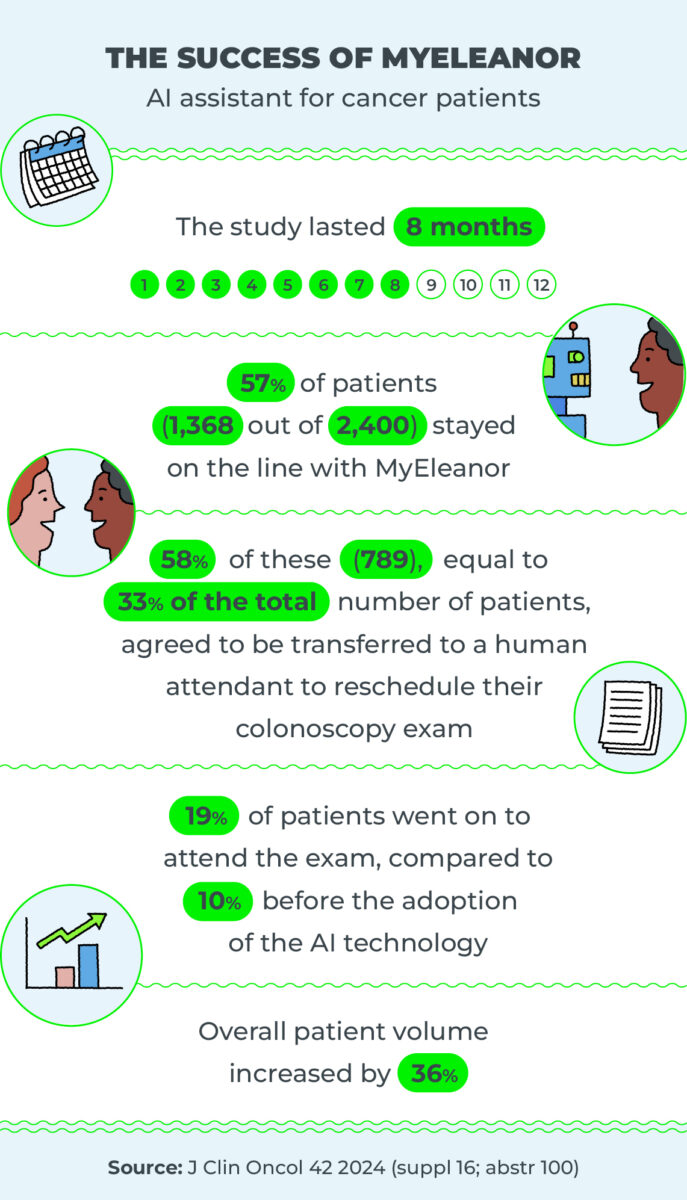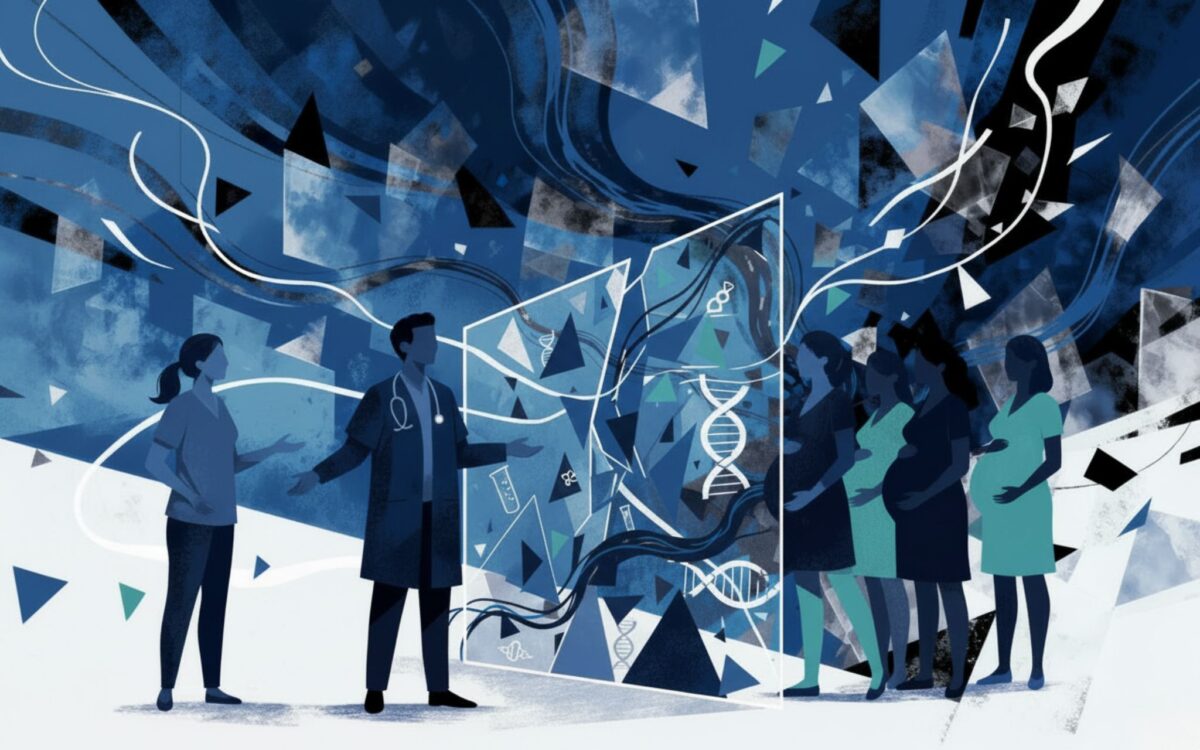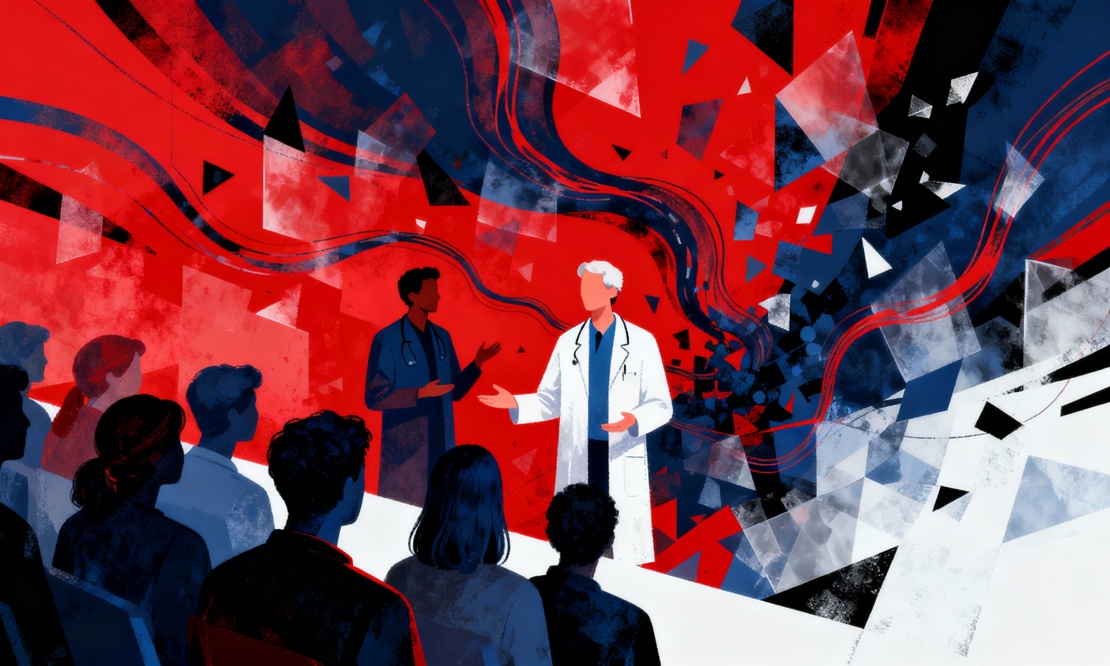 #News
#News
AI increases colonoscopy rates in the US
New York study used digital technology to identify cancer patients who missed colonoscopy exams
 Artificial intelligence helped double colonoscopy completion rates in a group of patients who missed their colonoscopy exam | Image: Shutterstock
Artificial intelligence helped double colonoscopy completion rates in a group of patients who missed their colonoscopy exam | Image: Shutterstock
A study conducted at the Montefiore Einstein Comprehensive Cancer Center in New York, USA, used AI to contact patients who missed their colonoscopy exams, doubling final attendance rates in the group.
Alyson Moadel-Robblee, a psychologist from the center who specializes in oncology, presented the results at the annual meeting of the American Society of Clinical Oncology (ASCO). The society was founded in 1964 to connect doctors and health professionals working in oncology around the world, with the aim of encouraging research and actions related to cancer treatment.
In partnership with the technology company MyndYou, researchers created a conversational AI bot capable of contacting patients who failed to show up to their exams.
The technology helped double colonoscopy completion rates in the group.
According to Moadel-Robblee, automated tracking of no-shows is essential because the hospital’s employees alone are simply not able to get hold of the 3,000 patients who miss colorectal exams every year.
“Since the pandemic, the demand and load on our healthcare team is huge. They can only do so much,” the psychologist said during the event, according to a report published on the website Statnews. “They can’t call in the evening or whenever.”
The AI, named MyEleanor, calls patients who did not show up or canceled their appointments. If they pick up, “she” has two assignments: transfer them to a human attendant, and if the patient consents, guide them through a brief survey about why they missed their appointment.
“Our virtual navigator doesn’t sleep. So she can call earlier, later, or on different days,” explains Moadel-Robblee.
She also emphasizes that great care was taken to ensure that MyEleanor did not appear too human.
Former cancer patients said they do not like feeling unsure about whether they are talking to a human or a machine.
MyEleanor thus maintains the speech of a robot, but without seeming impersonal,Moadel-Robblee is keen to emphasize. “She’s really warm,” said her creator. “She says: ‘I’m Eleanor. I speak English and Spanish, which would you prefer? I’m part of the care team.’”
A quarter of the population of the Bronx speaks Spanish, and many people in the US miss appointments because of a language barrier, making the AI’s ability to speak Spanish a major advantage.
More exams and spare time
Of the 2,400 patients MyEleanor called, 57% stayed on the line with the bot. Of these, more than half agreed to be transferred to an attendant to try to reschedule their appointment.
Human operators were then able to increase the proportion of no-show patients who completed a colonoscopy from 10% to 19%. The robot also helped free up an average of 52 hours of work per month for each attendant.

The figures are considered very promising, given that a significant proportion of Bronx residents are underserved and may face multiple barriers to accessing care.
According to the study, in addition to many patients being Spanish speakers, about 40% of them are Black, 32% are unemployed, and only 40% are educated beyond high school level.
Black and Latino patients are more likely to be diagnosed with colorectal cancer at a young age.
Doctors and cancer researchers at the ASCO conference praised the initiative, according to Statnews.
“This is truly an innovative means of increasing cancer screening,” said Fumiko Chino, a radiation oncologist at Memorial Sloan Kettering Cancer Center.
“It really offloads the burden from an overworked healthcare workforce by leveraging AI technology to optimize the outreach capacity to vulnerable populations,” Chino added.
According to Moadel-Robblee, the aim is for MyEleanor to later be used in other cancer prevention programs, including for lung and breast cancer.
*
This article may be republished online under the CC-BY-NC-ND Creative Commons license.
The text must not be edited and the author(s) and source (Science Arena) must be credited.


